“This is an inclusive meeting in which all DBK employees can participate. We are firmly convinced that not only representatives of the leadership should be judged as "geniuses". We believe that open communication paths that allow every employee who has a positive constructive comment or recommendation will always be welcomed. This is a unique opportunity for all of us to come together to further strengthen DBK through the exchange of ideas".
The agenda of the strategic session provided for the discussion of the following issues: changes in the Development Strategy of DBK for 2014-2023, taking into account the new realities; on supporting the private sector during a pandemic, focusing on sustainable development; on the implementation of international best practices and tools to optimize the Bank's activities; fostering closer relationships in strategy and risk management; on personnel policy (personnel development, since the main asset of the organization is human resources).
DBK, as the main development institution that has a direct impact on the development and recovery of the manufacturing sector, regularly analyzes the external environment and the state of the economy of Kazakhstan. So during the session, DBK analysts noted that the industry is the leading sector of the economy of Kazakhstan, where the main share falls on the mining sector (55.4%), which in turn provides 3.2% of employment in the economy. The manufacturing industry provides 6.6% of employment and 11.4% of gross value added in the country's economy at the end of 2019.
In addition, the impact of COVID-19 on the economy of Kazakhstan was discussed at this site. According to the ADB report, the world economy could suffer losses in the amount of 5.8 trillion to 8.8 trillion US dollars, which is equivalent to 6.4-9.7% of world GDP as a result of the pandemic, including losses in Central Asia - from 21.1 to 43.0 billion US dollars (or 3.4-5.5% of the region's GDP). The IMF predicts a decrease in Kazakhstan's GDP in 2020 to minus 2.5%, in connection with the measures introduced to contain the spread of COVID-19. According to the KPMG analysis, the segments and sectors of the economy of Kazakhstan most affected by COVID-19 include: SMEs, non-food retail trade, aviation, oil and gas, mining, transport, electricity, and services.
The session also spoke about the role of DBK in the diversification of the country's economy. The bank is showing steady growth in lending to large projects in the manufacturing industry and infrastructure. During 2014-2019 the bank has increased its role in the banking sector. It was noted that there is a need to further support projects with high added value, which will serve as a long-term basis for sustainable development of the economy as a whole. In turn, DBK's management noted the importance of continuing to work to increase the share of the private sector in financing projects, increasing the share of borrowing from market sources.
DBK, as one of the main advanced institutions of Kazakhstan, is constantly working on the development of digitalization and has successfully implemented in a number of key areas (automation of internal processes, including processes of interaction with counterparties of DBK on the basis of a personal account).
As part of the discussion of the Strategy, the Sole Shareholder, management and DBK employees expressed a common opinion on the vision of DBK, which includes important strengths.
Chairman of the Board of DBK Abai Sarkulov noted that DBK is the leading operator of the country in the assessment and structuring of large infrastructure and industrial projects, providing timely and sufficient funding for projects in the field of industry and infrastructure.
“Today DBK remains an organization providing the best financing in national currency and one of the largest development institutions in the country in terms of assets with a recognized authority on international markets. It is also important that DBK remains the main agent in attracting long-term and low-cost borrowings and investments for corporate clients", the head of DBK emphasized.
It should be noted that the strategically important task of DBK is to finance projects with a high socio-economic effect in the manufacturing industry and infrastructure, to help increase the role of the private sector in the development of the country's economy and to introduce and adhere to the principles of sustainable development, including stimulating the transition to a "green" economy. Also at the Session, the earlier decision of DBK was approved to continue to support the development of the manufacturing industry, with a focus on the development of such sectors as the agro-industrial complex, food industry, mechanical engineering, information technology, telecommunications, green energy projects, including waste recycling. In the future, DBK will continue to implement the state programs SPIID and Nurly Zhol for 2020-2025 and assist in the implementation of import substitution projects. At the same time, support for the development of infrastructure, domestic exporters, the implementation of projects through public-private partnerships will remain one of the priorities of DBK.
DBK also plans to implement and comply with the principles of sustainable development, including stimulating the transition to a green economy, integrating environmental, social and governance factors of sustainable development, the so-called ESG factors.
As part of the session, which consisted of more than a hundred participants, using the opportunity of live discussion from the audience, questions were asked to independent directors and top management of the Bank.
Summing up the results of the Strategic Session of DBK, independent directors summarized the key points of strategic development of DBK, in particular, independent director Antonio Somma, drew attention to continuous work in terms of improving corporate governance, citing an example from practice, where independent directors send a letter to the Chairman of the Board of Directors with proposals for improving the activities of DBK. At the same time, he stressed that this practice was in the OECD recommendations as the best standard used in developed countries and world leading companies.
Anvar Saydenov, as a member of the Board of Directors, noted the high level of organization of the strategic session, highly professional analytics, reporting and planning, and also expressed his opinion on the high level of corporate governance of DBK.
Marcia Favale, as an independent director, emphasized the openness and readiness of the members of the Board of Directors and the Management Board of the Bank to be more communicative and ready to discuss new issues with feedback, drawing attention to the fact that each DBK employee can send his requests to independent directors, since their the main role is to serve the goals of the company to comprehensively improve collaboration. At the same time, Ms Favale expressed her belief that a strong corporate culture of DBK, as an institutional framework, will support the quality implementation of the new strategy.












